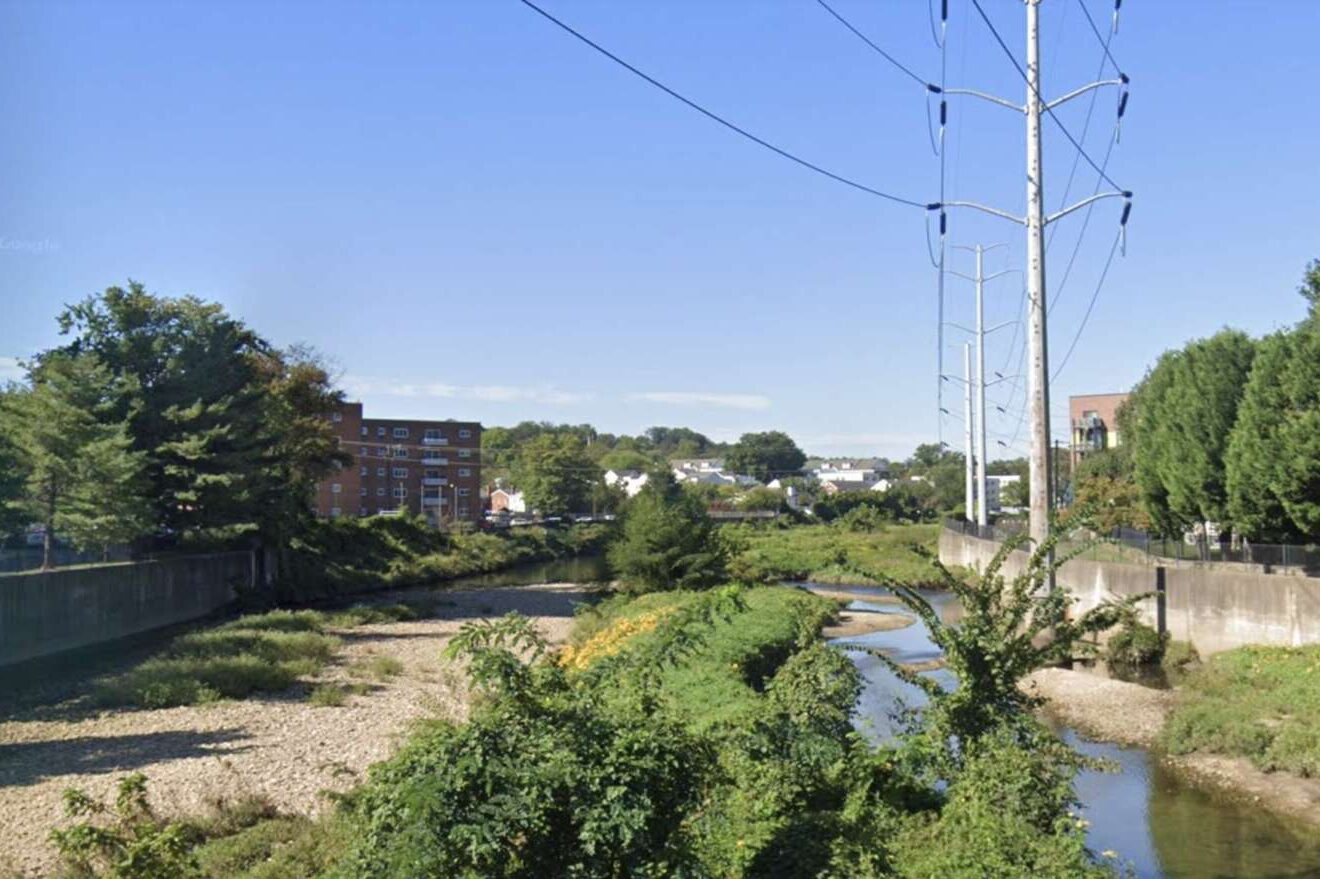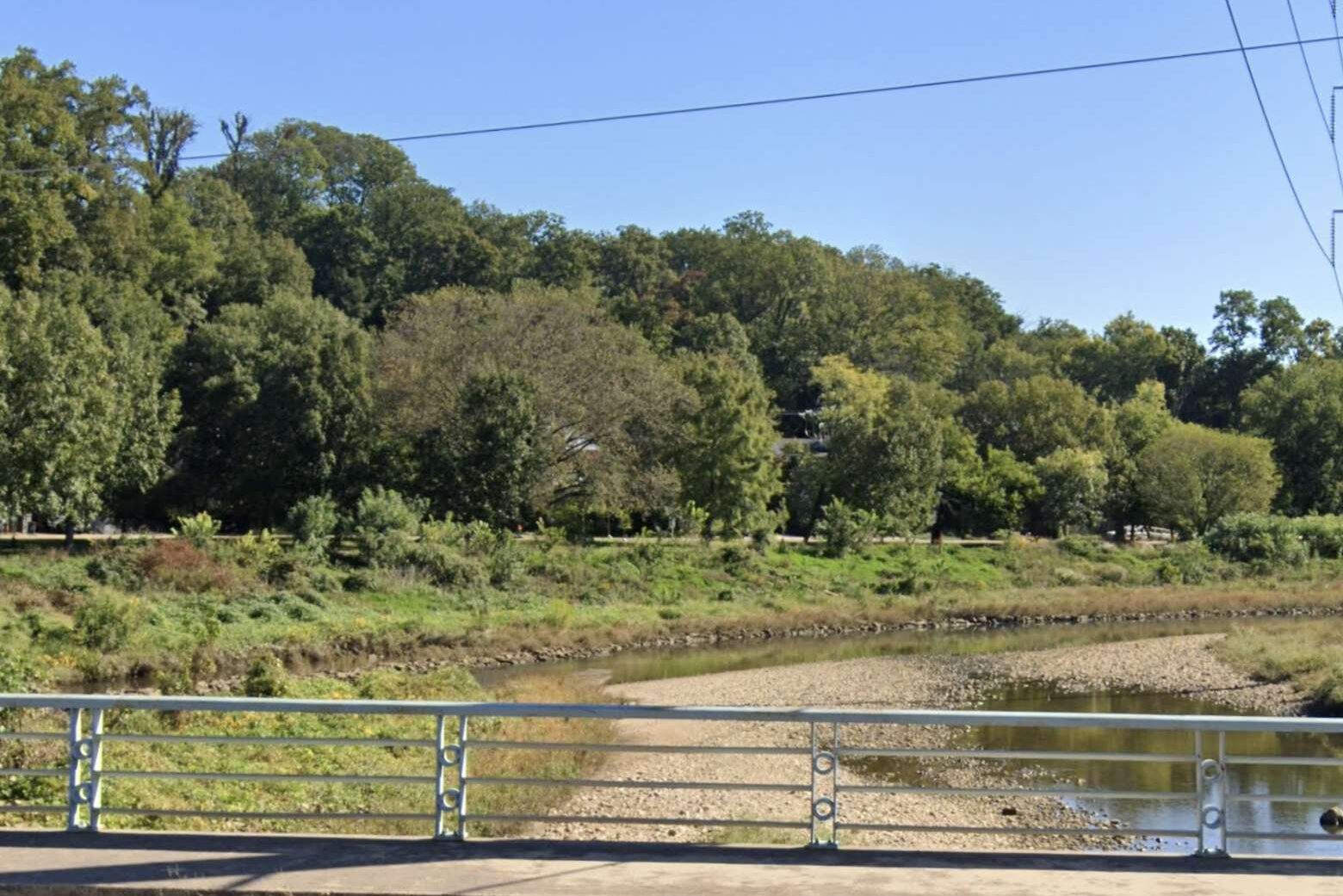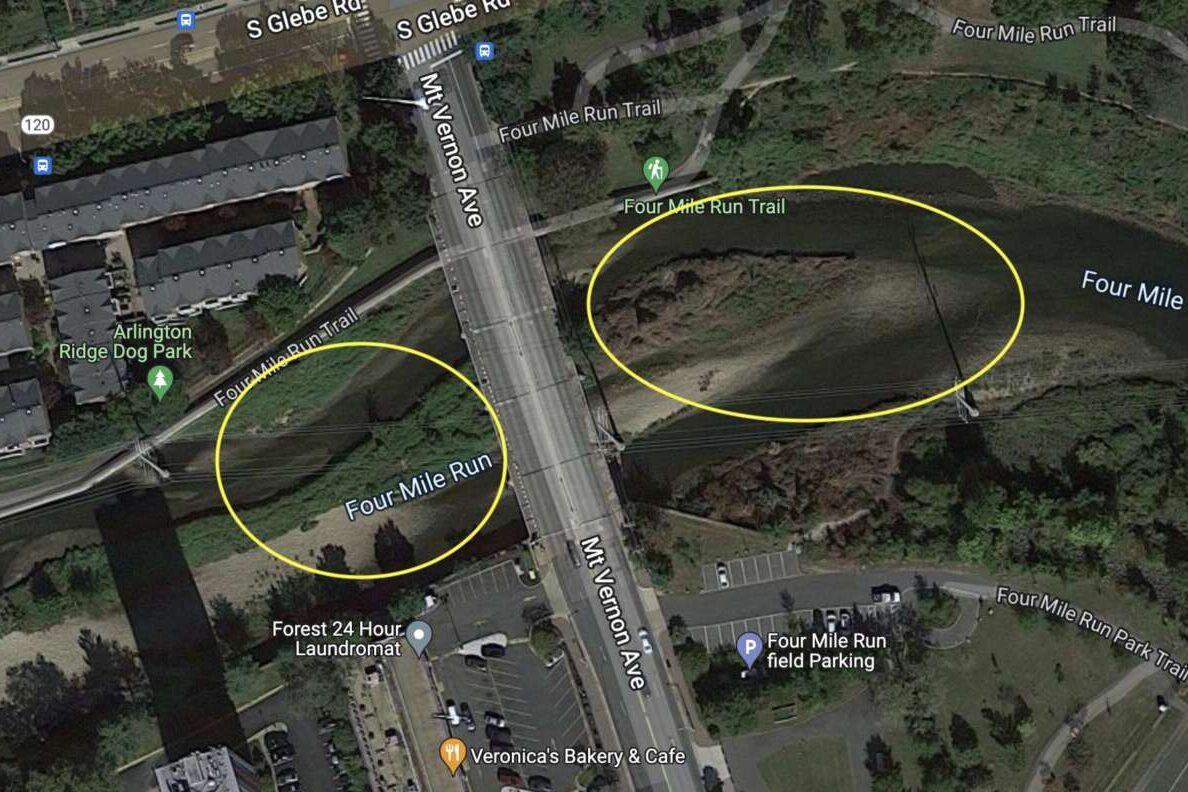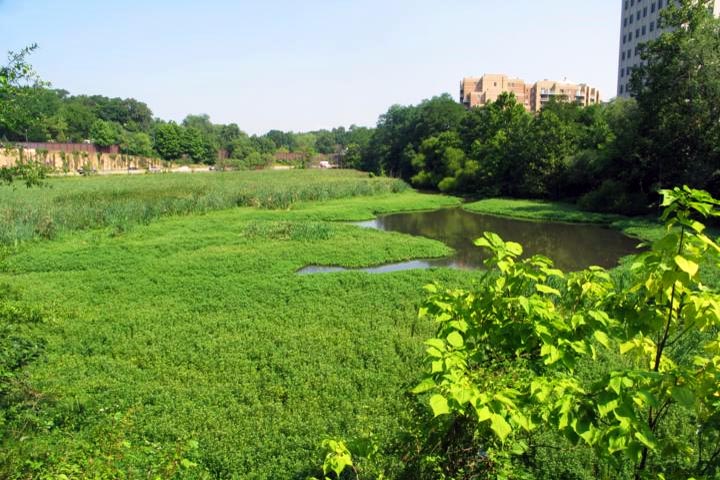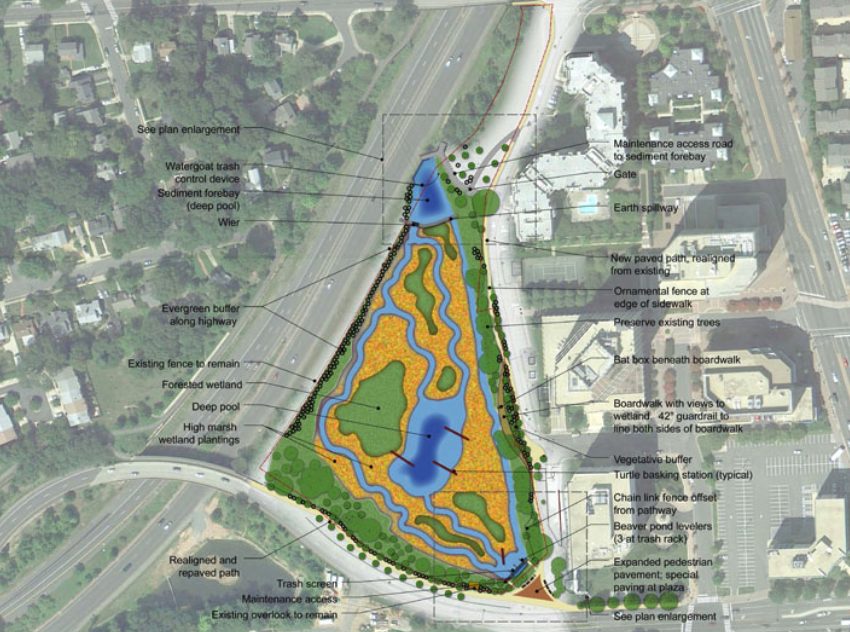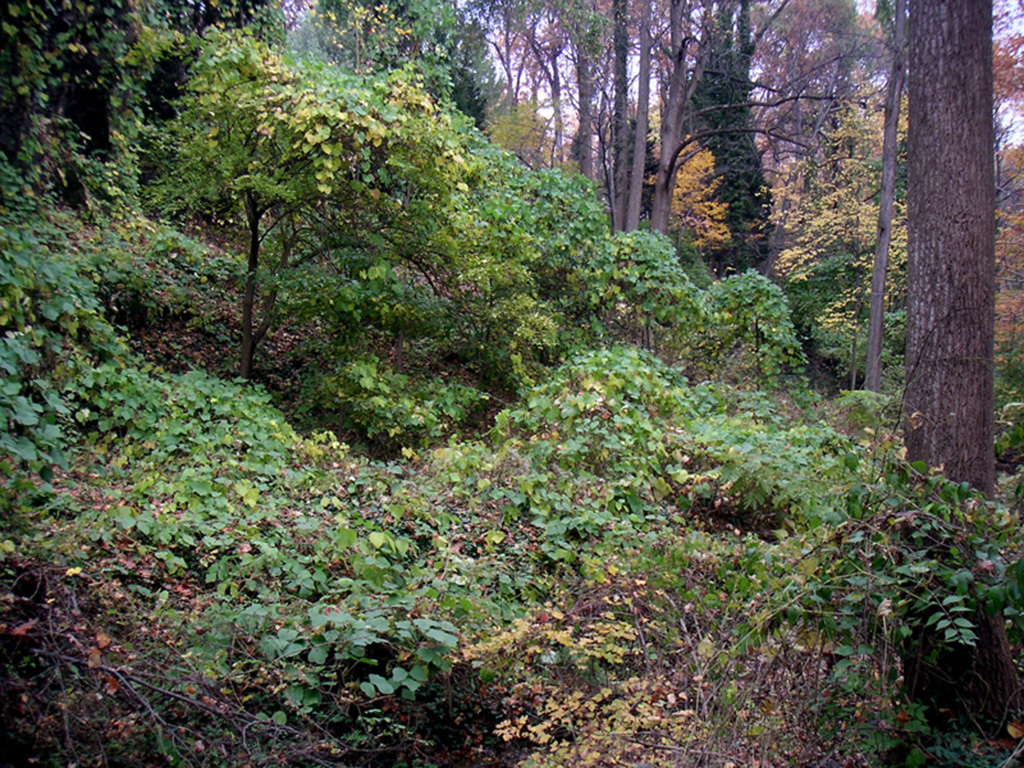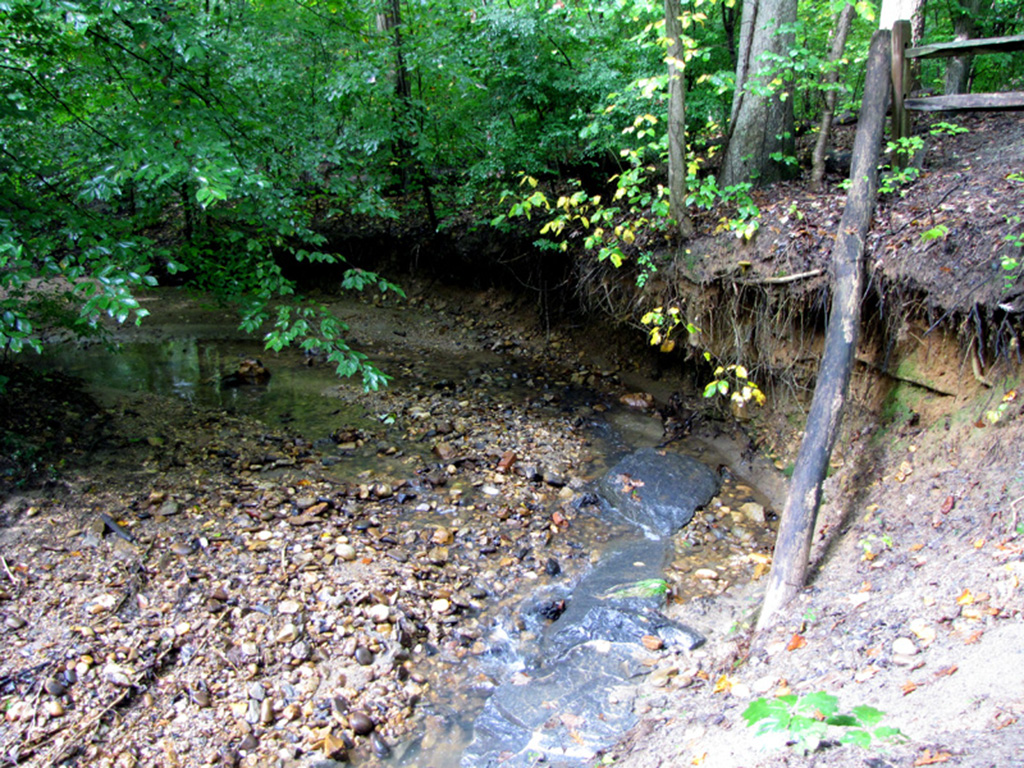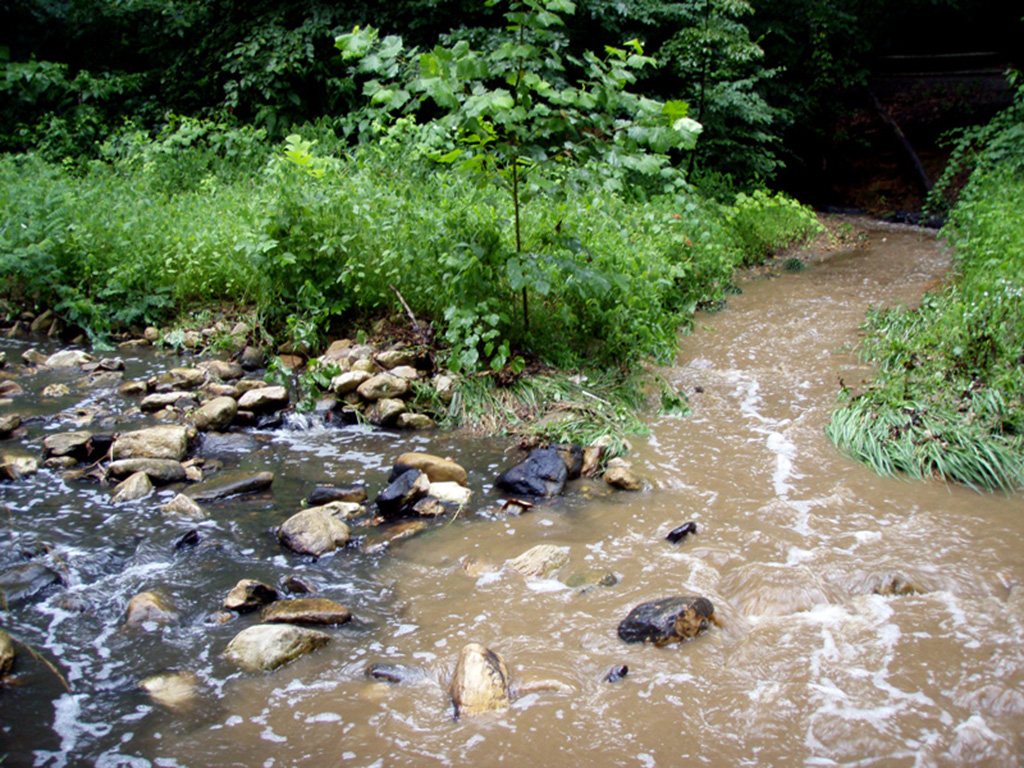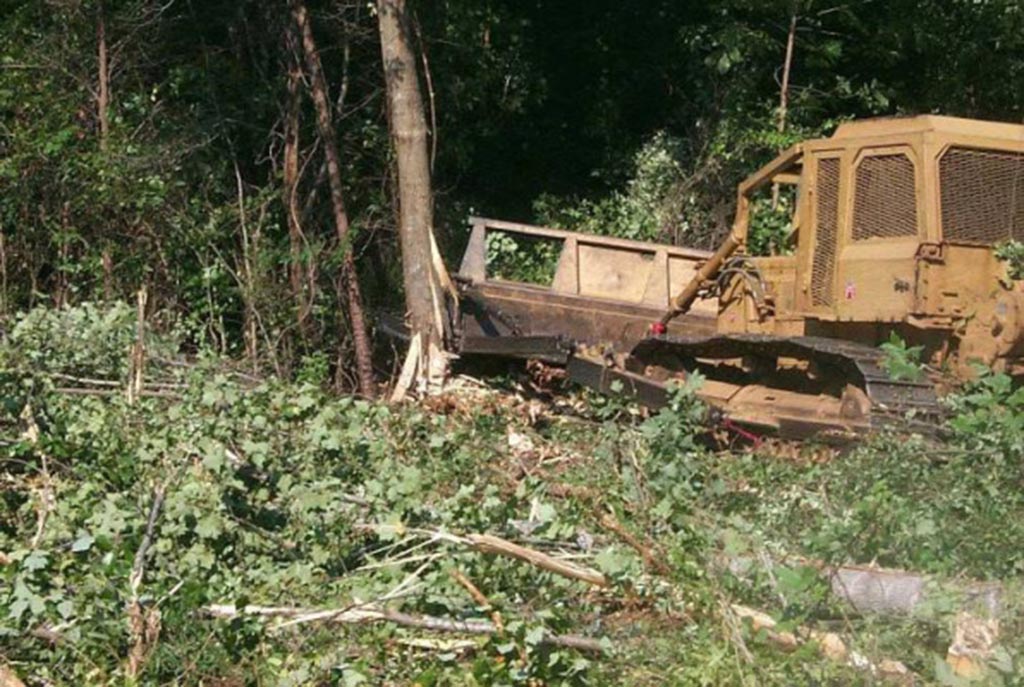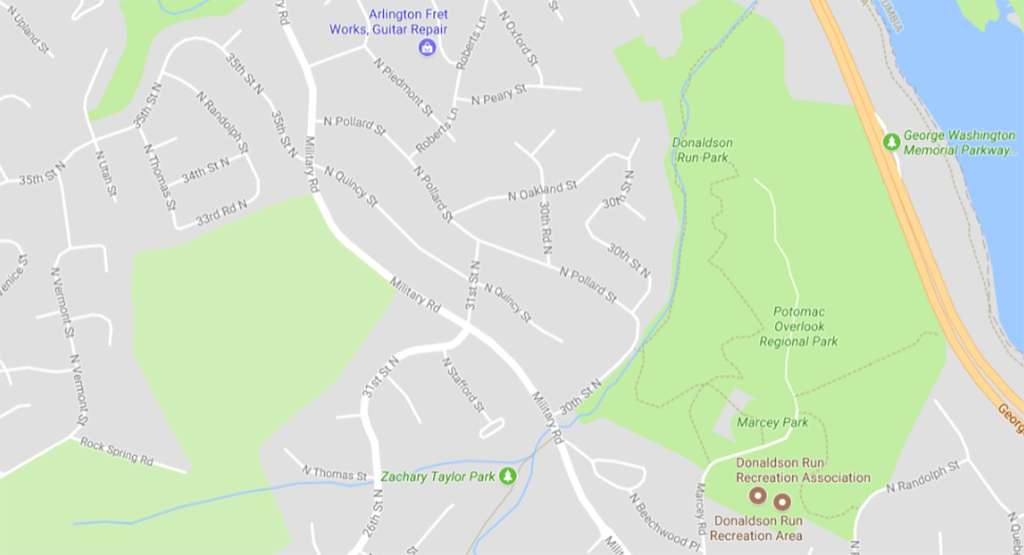Arlington County plans to dredge stretches of the Four Mile Run and lower Long Branch Creek channels to alleviate potential flooding.
The project targets sections of the waterways near Mt. Vernon Avenue, bordering the City of Alexandria, where U.S. Army Corps of Engineers (USACE) determined soil deposit levels were “unacceptable” for stormwater management.
The Arlington County Board is slated to review the project this Saturday.
The USACE inspection determined the channel had “excessive shoaling” due to shallow water depths. Dredging the soil deposits will address this shoaling and ensure the channel can handle large, once-in-a-century floods, the county says.
As part of the project, erosion damage and degraded stream conditions will also be repaired and debris and vegetation will be cleared. Construction is slated to begin in September and last until February, according to a project webpage.
The maintenance work “addresses maintenance of the Four Mile Run streambed that is required by the USACE, would help alleviate flooding along the Long Branch Tributary and would not significantly change any facilities, program or services provided to the community,” per a county report.
The entire project will take four to six months, Department of Environmental Services spokeswoman Aileen Winquest tells ARLnow. For one month, while work on the Lower Long Branch channel takes place, some access to Troy Park will be limited.
“While the dredging work in Lower Long Branch is underway, there will be a small area at the end of Troy Park (closest to Glebe Road) that will be closed because it will be used for accessing the stream,” Winquist said. “There will be parking restrictions near that end of the park. The majority of the park will remain open and accessible.”
There will be a public meeting about the project in May, she said.
Arlington and the City of Alexandria worked with the USACE to design and build a flood-control channel in this portion of Four Mile Run — not far from where the creek meets the Potomac River — in response to repeated flooding that began in the 1940s. The channel, dubbed the Four Mile Run East and West Levee System, was built between 1974 and 1984. USACE inspects the levee every year to see how well it’s being maintained.
Arlington County will pay for the $5 million project and will receive partial reimbursement from the City of Alexandria, leaving the county on the hook for $2.88 million.


